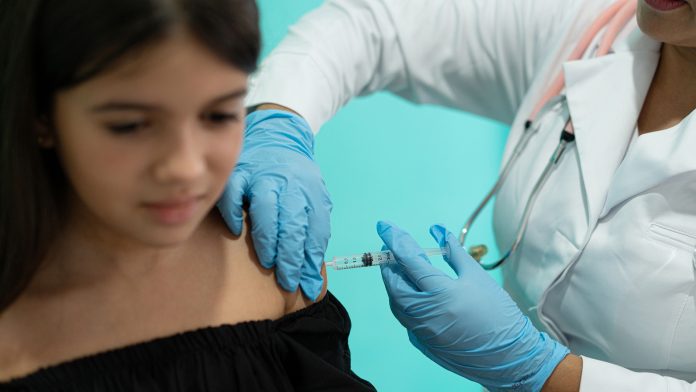
The World Health Organization (WHO) has recently published a paper outlining updates to their recommendations for the human papillomavirus (HPV) vaccine.
Notably, the paper states that a single-dose schedule, referred to as an ‘alternative, off-label single–dose schedule’ can provide comparable efficacy and durability of protection to a two-dose regimen. The recommendation for the alternative single-dose HPV vaccination schedule was initially made by WHO’s independent expert advisory group, SAGE in April 2022.
The paper comes amid concerns about the decline in HPV vaccination coverage globally. Coverage of the first dose of HPV vaccination has fallen by 25% to 15% between 2019 and 2021. This means that around 3.5 million girls are missing out on HPV vaccination in 2021 compared to 2019.
What is HPV?
HPV, or Human papillomavirus, refers to a highly common group of viruses. They do not cause serious health issues in most people; however, some types can cause genital warts or cancer. HPV affects the skin and there are more than 100 different forms of the disease.
HPV is usually symptomless and most people who contract the virus do not realise or experience any problems. However, sometimes the virus can cause painless growths or lumps around your vagina, penis or anus, also known as genital warts. There is currently no treatment for HPV and most cases clear after around two years.
WHO believes the optimisation of the HPV vaccination schedule will improve access to the vaccine, allowing more countries the opportunity to increase the number of girls who can be vaccinated.
HPV vaccination can stop cervical cancer
It is hoped the new vaccination schedule can alleviate the burden of the follow-up required to complete the vaccination series, which is often complicated and expensive. In the updated guidelines, WHO have stressed the importance of countries strengthening their HPV vaccination programmes, expediting implementation and reversing the declines in vaccine coverage.
WHO now recommends:
- A one or two-dose schedule for girls aged nine and 14 years,
- A one or two-dose schedule for girls and women aged 15-20 years,
- Two doses with a six-month interval for women older than 21 years.
The paper also highlights the importance of prioritising the vaccination of immunocompromised people, and those living with HIV. Immunocompromised individuals need to receive a minimum of two doses and three doses where possible.
The primary target for the vaccination programme is girls aged nine to 14, prior to the start of sexual activity. The vaccination of secondary targets, including boys and older females, is recommended where feasible and affordable.
Cervical cancer is the fourth most common form of cancer in women, with over 95% of cervical cancer being caused by sexually transmitted HPV. Avoiding the development of cervical cancer by increasing access to HPV vaccines is a highly important step in alleviating unnecessary illness and death.
























